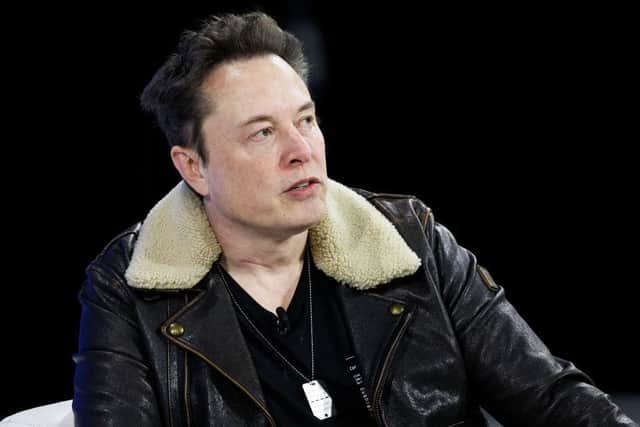Who are the world's richest men and why has their wealth doubled? Elon Musk, Bernard Arnault, Jeff Bezos, Larry Ellison, Mark Zuckerberg
The world’s five richest men have more than doubled their fortunes since 2020, while the wealth of the poorest 60 per cent – almost five billion people – has fallen, a report has found.
The study, compiled by charity Oxfam, found the wealth of the world’s richest men – X owner Elon Musk, Bernard Arnault, chief executive of LVMH, the world's largest luxury goods company, Amazon head Jeff Bezos, Oracle chief executive Larry Ellison and Mark Zuckerberg of Meta – increased by $464 billion (£364bn), or 114 per cent since 2020 to $869bn [£682].
Advertisement
Hide AdAdvertisement
Hide AdOver the same period, the total wealth of the poorest 4.77 billion people, making up 60 per cent of the world population, has declined by 0.2 per cent in real terms.


The report warned if current trends continue, the world will have its first trillionaire within a decade, but poverty will not be eradicated for another 229 years.
Inequality Inc, published as business elites gather for the World Economic Forum in the Swiss resort town of Davos, examines how sharply increasing billionaire wealth and rising corporate and monopoly power are interconnected and how corporate power exploits and magnifies inequalities of gender and race, as well as economic inequality.
The report reveals seven out of ten of the world’s biggest corporations have a billionaire as chief executive or principal shareholder. These corporations are worth $10.2 trillion [£8 trillion], equivalent to more than the combined GDPs of all countries in Africa and Latin America. Using Wealth X data, it also finds the world’s richest 1 per cent own 43 per cent of all global financial assets. In the UK, the richest 1 per cent own 33 per cent of all financial assets, with a value of $2.1 trillion [£1.6 trillion].
Over the same period, across 52 countries, average real wages of nearly 800 million workers have fallen. These workers have lost a combined $1.5 trillion [£1.2 trillion] over the past two years, equivalent to 25 days of lost wages for each worker. The most recent Gini index, which measures inequality, found global income inequality is now comparable with that of South Africa, the country with the highest inequality in the world.
Aleema Shivji, Oxfam’s interim chief executive, said: “These extremes cannot be accepted as the new norm. The world can’t afford another decade of division. Extreme poverty in the poorest countries is still higher than it was pre-pandemic, yet a small number of super-rich men are racing to become the world’s first trillionaire within the next ten years.
“This ever-widening gulf between the rich and the rest isn’t accidental, nor is it inevitable. Governments worldwide are making deliberate political choices that enable and encourage this distorted concentration of wealth, while hundreds of millions of people live in poverty. A fairer economy is possible, one that works for us all. What’s needed are concerted policies that deliver fairer taxation and support for everyone, not just the privileged.”
The charity is calling for progressive wealth taxes to be implemented by governments to reduce inequality and raise revenue for public investment. This comes days after Austrian heiress Marlene Engelhorn announced she is to create a panel of 50 ordinary Austrian people to decide what should be done with £21.5 million of her fortune.
Comments
Want to join the conversation? Please or to comment on this article.
